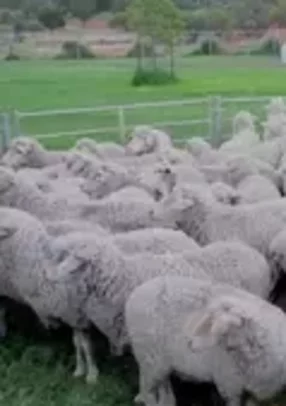Sheepmeat Council of Australia (SCA): Maintaining and Improving Market Access for Sheepmeat- Our Key Priority
The days when lamb was dismissed as a by-product of the wool industry have long gone. So is the era when Australian lamb was a commodity beset with inconsistency of supply and quality problems.
The industry is now worth $3.5-$4 billion a year, exporting to over 70 overseas destinations, and at the top end of the global sheepmeat market in terms of quality.
Lamb exports generated $1.31 billion in returns in 2013, with a similar retail value being realised on the Australian domestic market. The vast majority of Australian mutton (around 96%) is also exported, worth around $630 million in 2013. Today Australia is the largest exporter of mutton and live sheep, and the second largest exporter of lamb.
Sheepmeat Council of Australia CEO Dr Kat Ferme says, “The sheepmeat industry has been the quiet achiever of Australian agriculture,”
“The industry continues to strive through planning and collaboration to be the leading supplier of lamb and sheepmeat to a world with growing demand for our premium product. Maintaining and improving market access is our key priority."
SCA focuses on market access to ensure that there is a variety of market specifications available to accommodate the sheep industry’s diverse production systems; to increase the competitiveness amongst buyers; and overall to maximise the prices farmers receive for their product.
Australia has increased access to world markets over many years due to the quality of our product, its favourable disease status and world class food safety and integrity systems. Whilst sheepmeat exports have grown substantially, unfortunately both economic and technical trade barriers hinder our industry from realising its full potential.
In pursuit of freer trade, SCA works via an industry & Government partnership to ensure that access is not eroded through administrative, regulatory or policy impositions; and to secure a more favourable export market environment through strategic trade reform initiatives.
Over the past 12 months we have continued to build international relationships with our export markets, including the TriLamb partnership in the lucrative United States market. We have promoted the sheepmeat industry’s position in the Japan-Australia Free Trade Agreement (FTA) and the Korea-Australia FTA, both of which will provide certainty for small but growing sheepmeat trades. SCA has also supported market access developments in the Middle East and North Africa, including the reopening of the Bahrain livestock export trade and the signing of the animal health protocols necessary to reopen the livestock export trade to Iran.
SCA will continue to work with industry and Government stakeholders to improve market access for sheepmeat, and improve the farm-gate returns of Australian producers.
Sheepmeat Council of Australia
Sheepmeat Council of Australia (SCA) was formed in 1979 and is the peak national body representing and promoting the national and international interests of Australian lamb and sheepmeat producers.
SCA’s key role is scrutinising the performance of and setting the strategic imperatives to be pursued by the levy funded bodies, Meat & Livestock Australia (MLA), Animal Health Australia and the National Residue Survey. Our aim is to ensure the best investment of the levy funds, and that producers are receiving the benefits at the farm gate.
SCA also develops national policy on issues affecting sheep producers and lobbies the Federal Government to achieve better outcomes for producers.
For 2014/15 SCA’s market access reform focus, on behalf of our members, will be to ensure that sheepmeat is a recipient of advantageous outcomes from the suite of free trade agreements (FTAs) currently under negotiation including the:
- Australia-China FTA;
- Australia-Gulf Co-operation Council FTA;
- Trans-Pacific Partnership negotiations;
- Australia-India Comprehensive Economic Cooperation Agreement;
- Indonesia-Australia Comprehensive Economic Partnership Agreement; and the Regional Comprehensive Economic Partnership.

